The Chronicles of the Phien Chi by Trieu Nhu Quat (1170 - 1231), who served as the Vice-Minister of the Ministry of Justice in Phuc Kien and Tuyen Chau during the Song Dynasty, is a typical work. The Vietnamese version has just been released, translated and annotated by Tran Trong Hai Minh, and edited by Pham Hoang Quan.
A historical genealogy
As in the Introduction of researcher Pham Hoang Quan, readers can recognize the important position of Chu Phien Chi in the precious historical genealogy that ancient Chinese people recorded about the outside world .
Zhufanzhi (諸蕃志) means "Records on the vassal states". "Van quoc" here represents the hegemonic thinking of the Chinese elite and politicians ("Chinese heart" theory), considering surrounding countries or territories as "vassal states". Of course, that self-delusion is increasingly meaningless in the course of modern world history. Right in the Introduction to Zhufanzhi , Pham Hoang Quan proposed a more scientific understanding/interpretation that this book is "Records on the countries outside China during the Song Dynasty".
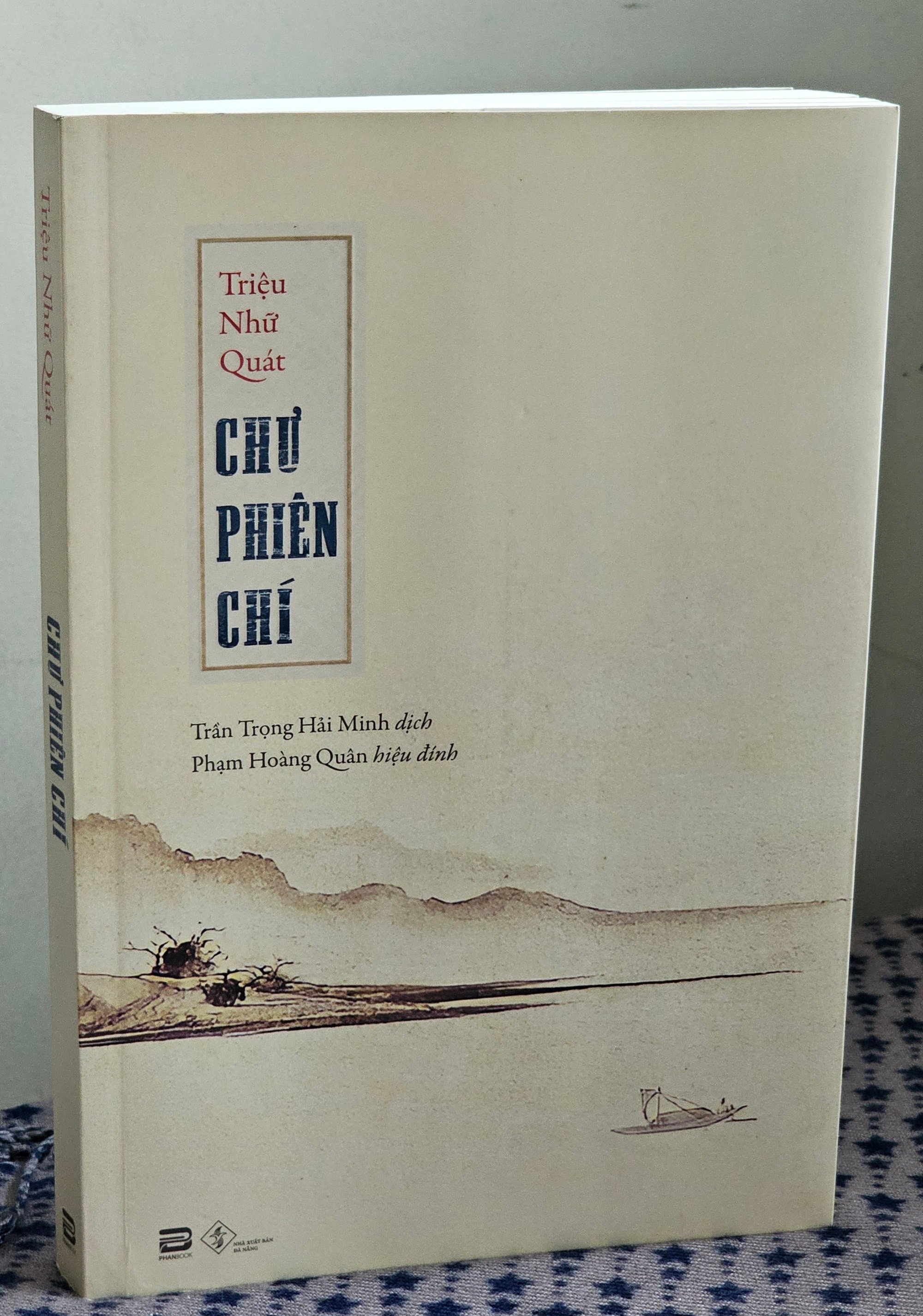
The editions are published by Phanbook & Da Nang Publishing House.
Photo: Nguyen Vinh Nguyen
The treasure trove of Chinese texts recording "foreign countries" is very rich. Such material can be found scattered in important historical books such as Records of the Grand Historian (Sima Qian), Book of Han (Ban Gu), General Records (Du You), General Records (Zheng Xiao), and General Records of Literature (Ma Duanlin)... Besides the mainstream history, there are also travel writings about other territories and countries with many different purposes, from literature, monk's notes to field exploration and commerce, for example: Phu Nam story (by Kang Tai), Nam Chau Di Vat Chi (Wan Zhen), Di Vat Chi (Yang Fu), Buddha Country Records (Fa Xian), Nam Hai Ky Quy (Yi Jing), Dai Duong Tay Vuc Ky (Xuan Trang Tang Tam Tang)...
According to researcher Pham Hoang Quan, the text Chu Phien Chi was "formed on a long-standing foundation" and "naturally became one of the very necessary titles in many research fields such as geopolitical history, maritime trade history, international relations history...". He also said that this type of book, before that, there was Lanh Ngoai Dai Dap (composed by Chu Khu Phi, 1178), then Dao Di Chi Luoc (Uong Dai Uyen, 1349), Thu Vuc Chu Tu Luc (Nghiem Tong Gian, 1574), Dong Tay Duong Khao (Truong Tiep, 1617) or books written during Trinh Hoa's voyages: Doanh Nhai Thang Lam (Ma Hoan, from 1416 - 1430), Tay Duong Phien Quoc Chi (Cung Tran, 1434), Tinh Sai Thang Lam (Phi Tin, 1436)...
The Chronicles inherit and refine previous historical documents, and they themselves also have new collections, serving as a reference basis for later works.
Useful notes
Trieu Nhu Quat may have written the book during his time as a manager at Thi Bac Ti (according to the editor, this position is similar to today's General Director of Customs). Thanks to that, he had contact with many merchants and travelers, and understood clearly the products from many overseas regions entering China through the circulation network between the Song Dynasty and the outside world. Therefore, the book has many unique, concise but lively materials that could help merchants inside and outside China at that time have a useful "map" on the trade route.
We can mention the concise but vivid explanations about the countries and territories near China such as Dai Viet, Champa, Chenla, Java, India, Silla (one of the Three Kingdoms of Korea), Japan, and further, the countries in Central and West Asia or having ties with Rome: Baghdad, Alexandria, Oman, Arabia, Egypt, and the Eastern Roman Empire Byzantium...
Each page of the main text of the work is often accompanied by many additional notes, comparisons of historical documents in Chinese libraries or annotations by scholars such as Hirth-Rockhill, Friendrich Hirth, Duong Bac Van, Phung Thua Quan..., including suggestions for today. Through the careful translation and annotation process, translator Tran Trong Hai Minh takes readers on a unique and interesting journey through time.
The book has many interesting stories: if the people of Champa and Funan sued and slandered each other, the mandarin did not need to examine them, they just had to let them pass through the crocodile-filled moat, whoever survived was an upright person; a "women's kingdom" where "women were kings and mandarins, men were only soldiers" or the tower in Alexandria that could contain
20,000 people, the tower has a well dug into the Nile River, the top of the tower has a large mirror to detect intruding forces and defend in time... And many, many interesting stories about customs, habits, and court life of each country are recorded. The part about precious products and their origins is also worth noting, for example: agarwood, musk wood originated from Champa, Chenla; dragon's blood, frankincense, rose water (tuong vi thuy) originated from Dai Thuc; camphor came from Bo Ne (Borneo)...
For scholars who study Vietnamese seas and islands, the Chronicle of the Phien Chi is not unfamiliar. The chapter on Hainan is considered one of the evidences showing that since the Han Dynasty (111 BC), the dangerous sea area considered Hoang Sa (with "sandbanks thousands of miles long, rocky banks thousands of miles wide [van ly thach sang], boundless and foggy with no visible shore, sky and water of one color") did not belong to China.
An ancient text but a valuable source of historical information for today.
Source: https://thanhnien.vn/chuyen-van-dam-cua-nghin-xua-185250829232211227.htm



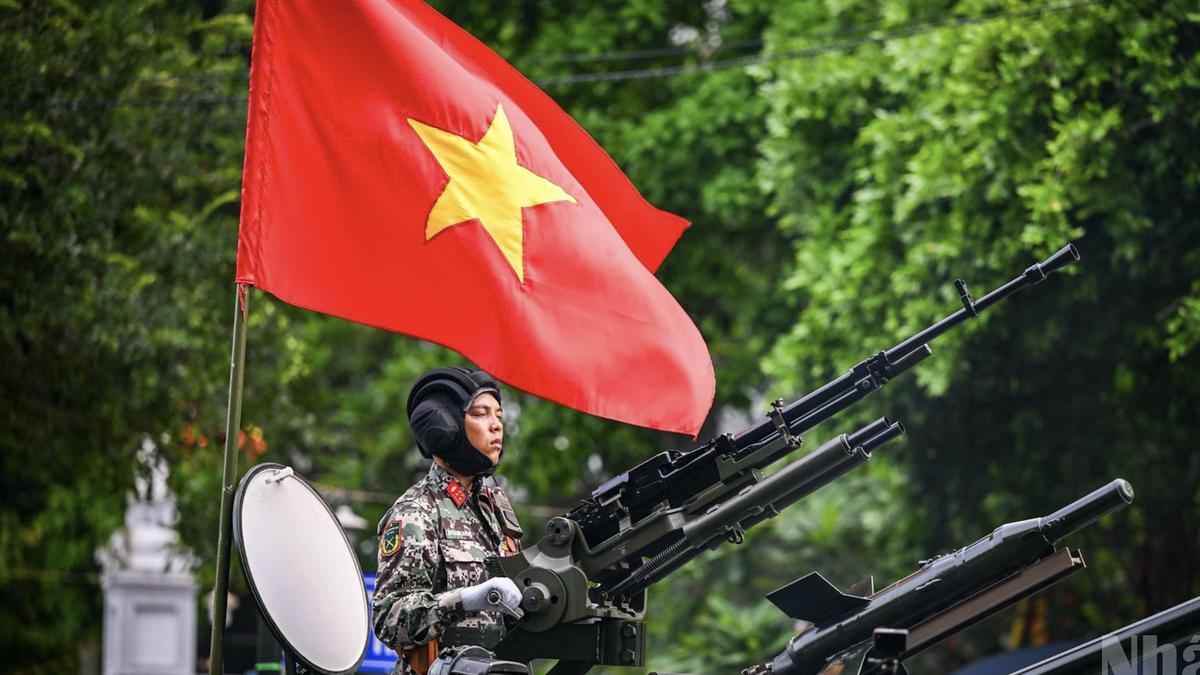
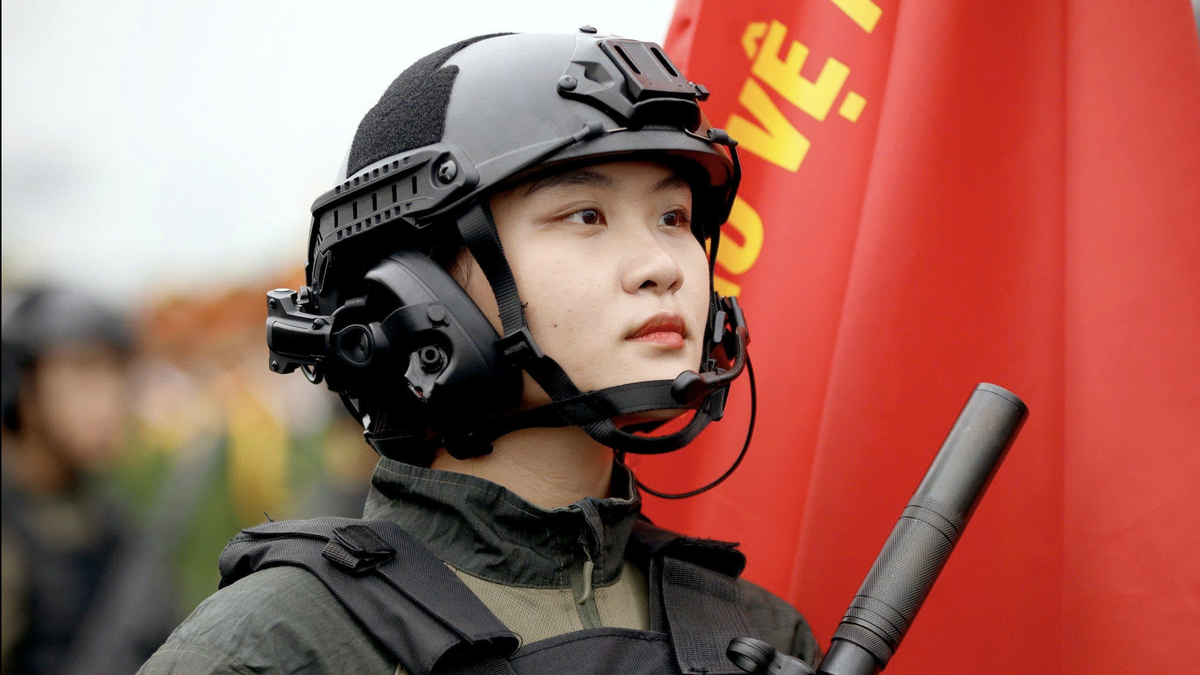
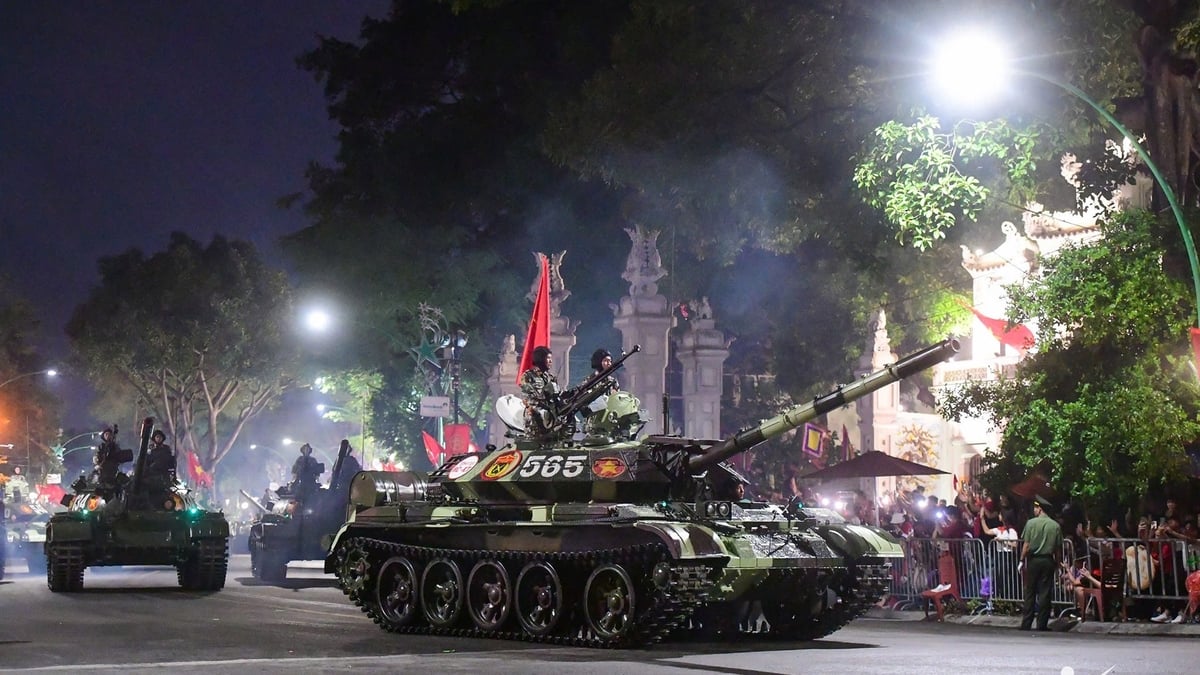
![[Photo] Hanoians stay up all night waiting for the parade rehearsal on the occasion of the Great Festival](https://vphoto.vietnam.vn/thumb/1200x675/vietnam/resource/IMAGE/2025/8/30/d14625501aee42e28bbd5227a1ff2b11)
![[Photo] Snail noodle dish makes Liuzhou city, China famous](https://vphoto.vietnam.vn/thumb/1200x675/vietnam/resource/IMAGE/2025/8/30/56e738ed891c40cda33e4b85524e30d3)
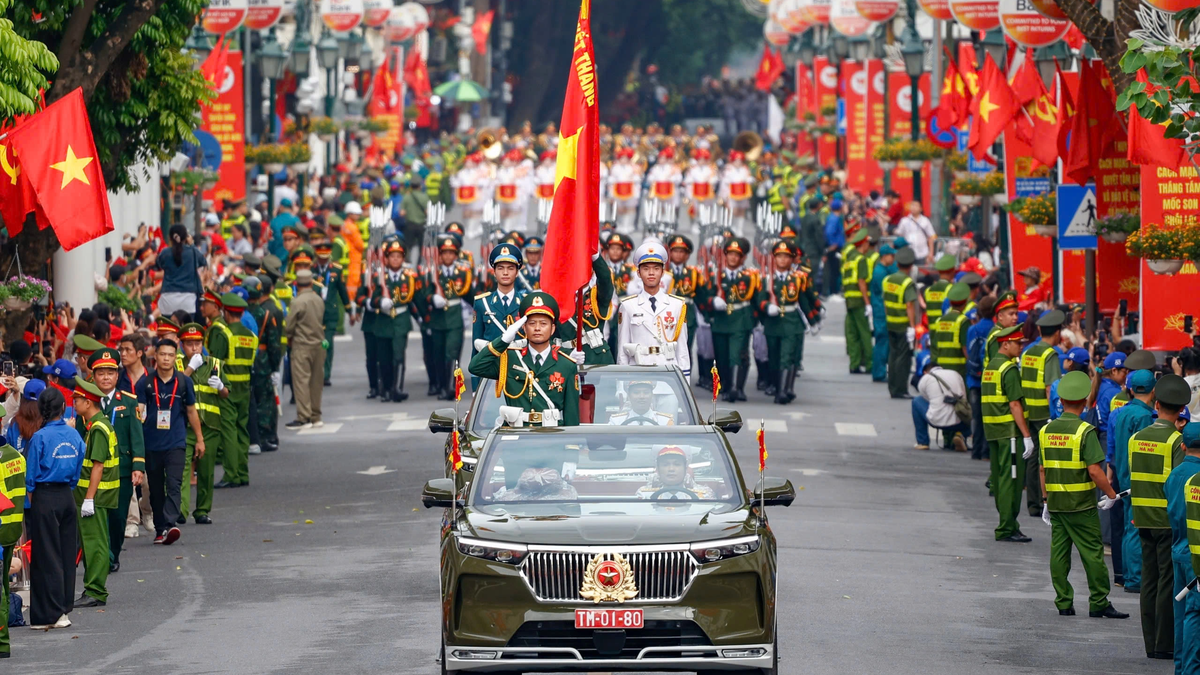







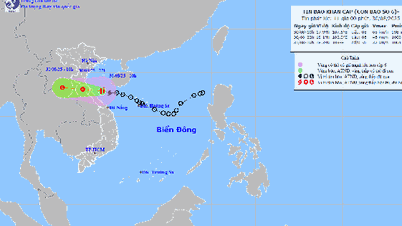



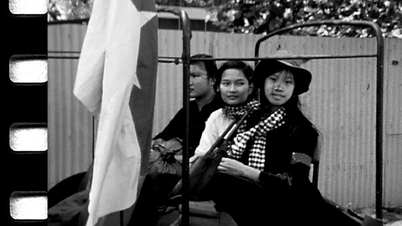




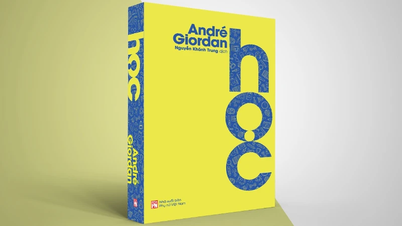





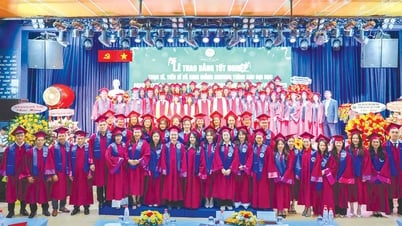

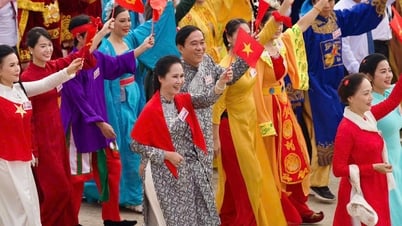















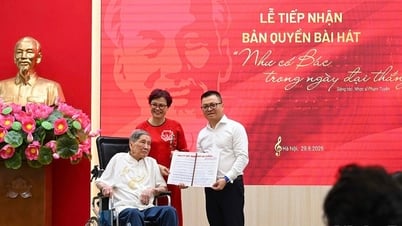




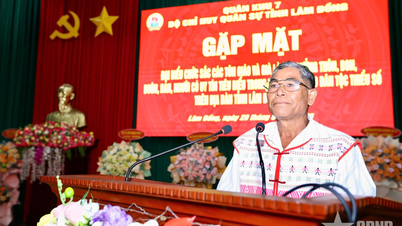










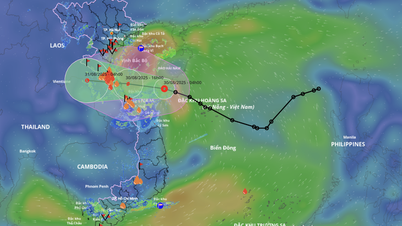


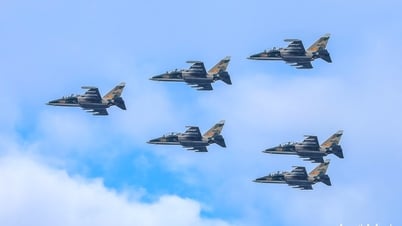













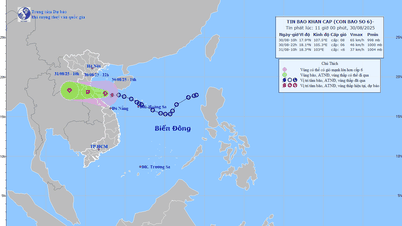

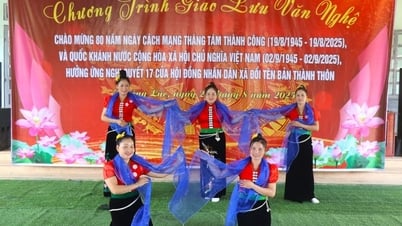











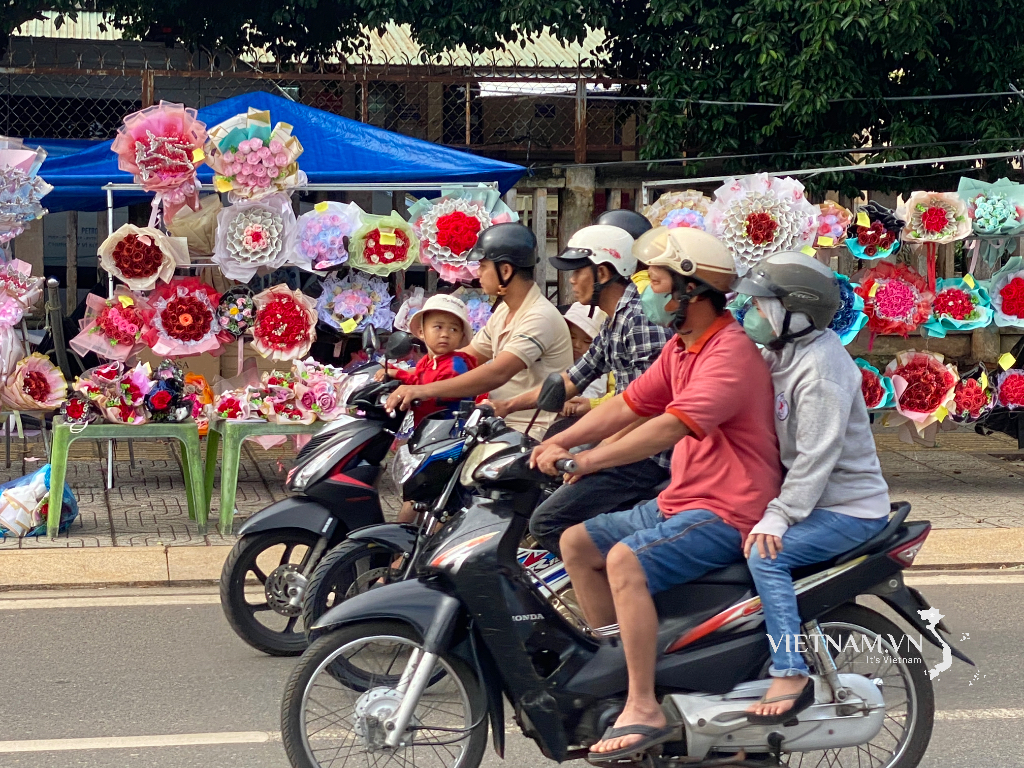

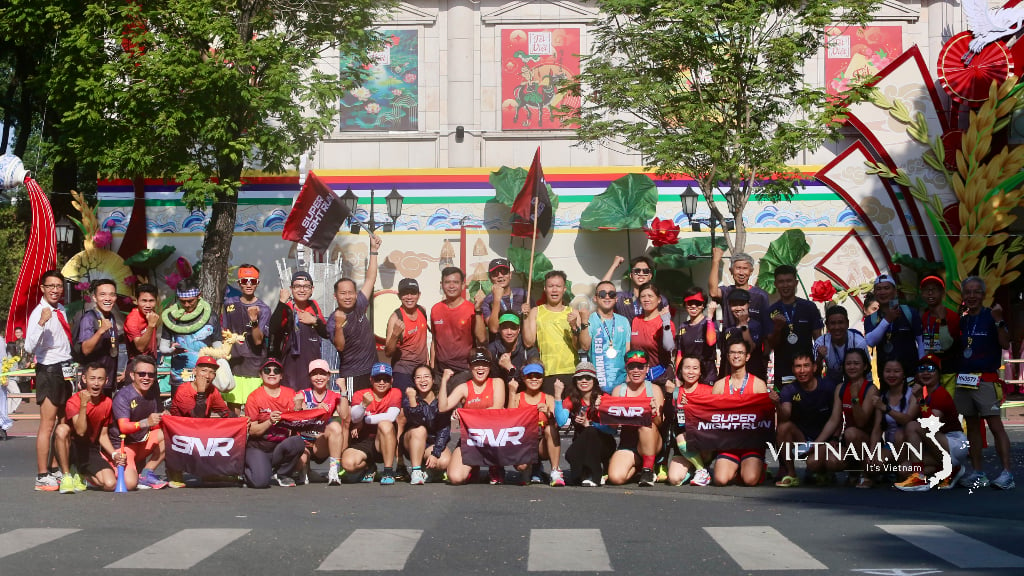
Comment (0)